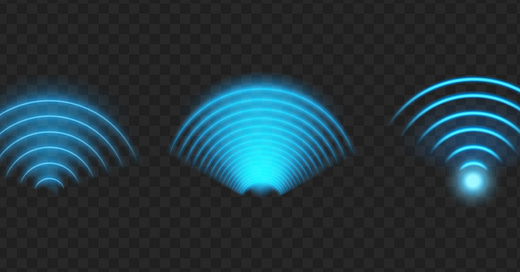Weekly Roundup: You can Learn Echolocation, Visual Clutter and Brain Processing, Learning from Others, Short Exercise Bouts Immediately Improve Brain Processing
A roundup of interesting research in the brain and human behaviour
This week has a few interesting reviews but the most fascinating that caught my attention was that of learning echolocation - yes, that is a thing.
Read on…
You Can Learn Echolocation
Echolocation sounds like a cool thing - it is how bats navigate. Imagine getting up in the middle of the night and being able to walk around your dark house using echolocation. Great but obviously something us human beings can’t do. Or can we?
Well apparently we can - there has been some research in blind people for obvious reasons - and it is also assumed that their brains can repurpose the visual regions. But I was surprised to read in Scientific American of research by Lore Thaler of Durham University in England that showed that with just 10 weeks of training sighted people could learn echolocation. Not bad!
You may wonder how this echolocation is done. It is done by producing mouth clicks and judging the environment or location of objects by the returning echo. May sound hard but participants could learn, in laboratory conditions, to recognise the size and orientation of single objects and to navigate through a maze!
Now Lore Thaler and colleagues have published the brain scanning data of these experiments and it shows that all participants whether sighted or blind activate parts of the visual cortex to achieve these tasks. This is a bit of a surprise because the assumption was that the visual cortex can be reassigned by blind people because the visual sense has disappeared or is non functional. This shows that the visual cortex can be reassigned or used for other functions in sighted people also.
However, the researchers did notice some small differences between blind and sighted people so there are some nuances to this. This also follows the reasoning of a review I reported on last year that noted that parts of the brain can be assigned for various functions but only of they have the basic capacity in the first place. Article here:
Visual Clutter Impacts Brain Processing
A few years ago I was looking to make some small changes to my home office and came across some Feng Shui advice - I’m not a believer in Feng Shui but have seen some lovely Feng Shui inspired places. One of these was that waste paper baskets should be covered so that we don’t see the mess. Clutter indeed should be minimised in general. This recent piece of research reminded of this.
This experiment by Xize Xu of Yale University investigated how information in our peripheral field of vision affects information processing in our main visual focus points. Previous research has shown that we can process information in our peripheral field but with different degrees of accuracy or ease.
Keep reading with a 7-day free trial
Subscribe to leading brains Review to keep reading this post and get 7 days of free access to the full post archives.





